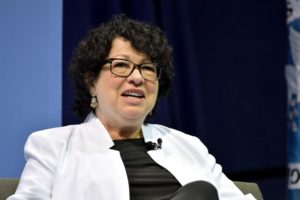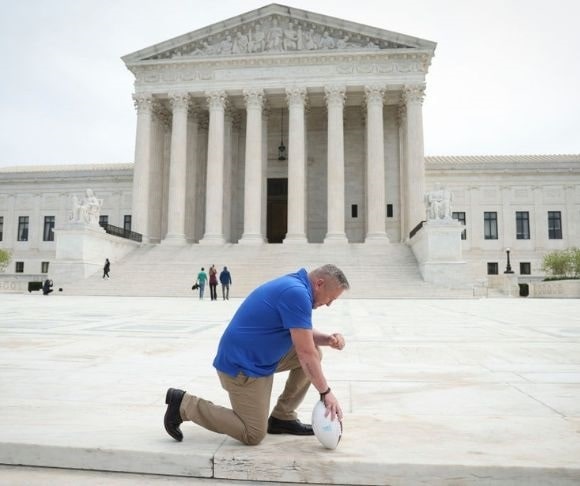Coach Joseph Kennedy liked to pray at midfield after Knights games in Bremerton, WA. An assistant coach for a high school football team, he was eventually fired for those prayers. On June 27, the Supreme Court ruled that the school district violated his First Amendment rights for his dismissal. The school argued the First Amendment required his firing to protect the students. The Court ruled 6-3 in Kennedy v. Bremerton School District that the school was wrong. However, the Court’s majority and minority opinions disagreed not just about the law but also the facts.

First Amendment Rights, But Whose?
To win the case, Kennedy had to show the school violated his protected religious speech and that the school would not be violating the students’ First Amendment rights by allowing him to exercise his. Justice Neil Gorsuch wrote for the majority:
“The contested exercise here does not involve leading prayers with the team; the District disciplined Mr. Kennedy only for his decision to persist in praying quietly without his students after three games in October 2015. In forbidding Mr. Kennedy’s brief prayer, the District’s challenged policies were neither neutral nor generally applicable. By its own admission, the District sought to restrict Mr. Kennedy’s actions at least in part because of their religious character. Prohibiting a religious practice was thus the District’s unquestioned ‘object.'”

Justice Sonia Sotomayor (Photo by Paul Marotta/Getty Images)
Justice Sonia Sotomayor challenged the facts laid out by Gorsuch before asserting counter legal arguments. She wrote, “To the degree the Court portrays petitioner Joseph Kennedy’s prayers as private and quiet, it misconstrues the facts.” She said the lower court record showed Kennedy “had a longstanding practice of conducting demonstrative prayers on the 50-yard line of the football field.” And that the coach “consistently invited others to join his prayers and for years led student-athletes in prayer at the same time and location.”
Seldom do the Justices insist on wildly disparate factual understandings of a case. Kennedy became a local celebrity, leading large groups in prayer on the field after games. The crowds got so big and unruly that a band member was injured in a postgame rush by spectators to pray with the coach. Gorsuch didn’t say this was false but that the large gatherings were not what caused his firing. The facts weren’t all that separated the majority and minority opinions; they also disagreed on what standard the Court uses to evaluate the case.
Making Lemonade
Named for a case called Lemon v. Kurtzman, the Lemon test “came to involve estimations about whether a ‘reasonable observer’ would consider the government’s challenged action an ‘endorsement’ of religion.” Gorsuch wrote:
“This Court long ago abandoned Lemon and its endorsement test offshoot. In place of Lemon and the endorsement test, this Court has instructed that the Establishment Clause must be interpreted by ‘reference to historical practices and understandings.’ A natural reading of the First Amendment suggests that the Clauses have ‘complementary’ purposes, not warring ones where one Clause is always sure to prevail over the others.”
Once again, Sotomayor accused the majority of not getting the facts right. She said the idea that the Lemon test had been abandoned was both erroneous and novel, writing:
“Lemon properly concluded that precedent generally directed consideration of whether the government action had a ‘secular legislative purpose,’ whether its ‘principal or primary effect must be one that neither advances nor inhibits religion,’ and whether in practice it foster[s] ‘an excessive government entanglement with religion.'”
For school district employees, if you’re free to stand around and talk on the phone or otherwise attend to some personal interest while on school grounds or at a school activity, you may also pray. You can’t be fired for the prayers, but if those prayers cause enough of a ruckus, you may yet be fired for that effect.




